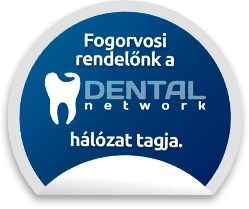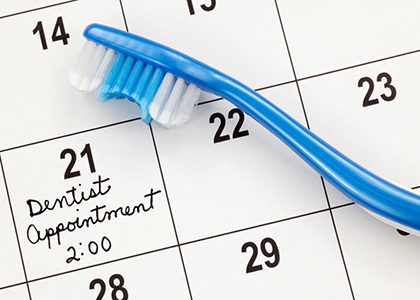Causes and Treatment of Toothache
Toothache can be dull, throbbing, sharp, or even brutal. It may arise from various causes such as tooth decay, tooth fracture, inflammation, or improperly fitted crowns. How can throbbing toothache be alleviated? Is toothache normal after a filling? Which is the best painkiller for toothache? This article answers your most pressing questions!
Causes and Types of Toothache
Toothaches can be categorized in many ways. In the following classification, we consider the intensity of the pain. It is important to consult a dentist or oral surgeon for dental and oral surgical complaints, as this list is for informational purposes only and should not be used for self-diagnosis.
Persistent, Dull Toothache
Dull toothache is unmistakable. Significant discomfort with constant pain can occur at one or more teeth simultaneously. Typically, the affected area is particularly sensitive to hot and cold foods and drinks. The pain usually intensifies when tapped or touched. In severe cases, it can hinder sleep and eating. But what could be behind dull toothache? The answer is usually tooth decay (caries), which damages the hard tissues and reduces the mineral content of the teeth. According to research conducted by the Prosthodontics Clinic of Semmelweis University, which examined the dental status of more than 5,000 compatriots using a representative sample across more than 300 municipalities, an average Hungarian person has 1.5 decayed teeth. We recommend that you visit your dentist in case of dull toothache!
Intense, Sharp Toothache
Though significantly uncomfortable, problems causing sharp toothache are usually quickly treatable. Possible causes include trauma-induced tooth fracture, poorly fitted crowns, thermal effects, orthodontics, or other normal consequences of dental procedures. Consult a dentist as soon as possible if experiencing sharp toothache!
Throbbing, Brutal Toothache
Unlike the above cases, throbbing toothache involves significant, continuous pain. Commonly accompanied by facial swelling, the pain can interfere with sleep and eating. Common causes include acute inflammation, abscess, infection, or external trauma to the teeth. If experiencing brutal toothache, seek dental care immediately!
What Can Be Done About Toothache?
When experiencing oral pain, the first question is: what can be done about toothache? Below, we summarize the steps for managing pain.
Home Remedies for Toothache
In some cases, immediate dental care may not be available. Fortunately, there are temporary home remedies that can help alleviate discomfort. Note that these home remedies do not replace a medical examination.
Home remedies for toothache? Try the following methods:
Use a pain reliever to reduce the severity of the toothache until you can receive professional help.
Apply an ice pack to the affected area! Ensure there is a barrier between the skin and the ice pack to prevent frostbite.
For toothaches caused by gum recession, gentle brushing with a soft-bristled toothbrush can reduce pain!
Anti-inflammatory mouthwash can help in some cases!
Professional Help for Toothache
Whether dealing with dull, sharp, or throbbing toothache, it is crucial to consult a professional. Most dental and oral surgical problems can be treated more quickly, simply, and at a lower cost in the early stages. Although toothache can be temporarily alleviated with home remedies, we recommend consulting a professional as soon as possible to prevent further complications.
FAQs
Toothache During Pregnancy: What Should I Do?
Hormonal changes during pregnancy can affect the oral bacterial flora, increasing the risk of diseases such as gingivitis. Toothache during pregnancy poses a greater challenge, as the range of painkillers that can be used is limited. If you experience toothache while pregnant, seek an appointment with your dentist as soon as possible!
How to Alleviate Throbbing Toothache?
Home methods to alleviate throbbing toothache include icing and using pain relief medications. For inflammation-induced throbbing toothache, anti-inflammatory mouthwash can also help ease the pain. However, professional treatment is necessary to address the issue adequately.
Is Toothache Normal After a Filling?
Yes, it is normal to experience toothache after a filling. The effects of local anesthesia wear off within a few hours, during which increased sensitivity and mild pain may be felt. Discomfort typically subsides within 12-24 hours.
Baby Toothache: How to Recognize Toothache in Infants?
Teething typically starts between 3-6 months of age, during which teeth continuously push towards the gums, causing pain. We have summarized the symptoms of teething.
Signs of baby toothache include:
Sleep difficulties
Drooling
Increased crying
Restlessness
Lethargy
How Long Can Toothache Last After Root Canal Treatment?
Root canal treatment aims to save teeth with dead pulp, typically caused by deep decay or pulpitis. Intense toothache immediately after root canal treatment is not normal, however, sensitivity in the treated area may persist for days.
Fehérvári Dental: Professional Dental Care in the Heart of Budapest
Since our establishment in 1997, we strive to provide your family with the highest quality and comprehensive care, from toddlers to great-grandparents. Our specialists cover all areas of dentistry, so complex treatments requiring multiple dental specialists can be managed on-site. Our team's professional and coordinated operation is evident throughout the entire care process—from specialist consultations to administrative tasks.
Our dental practice represents high standards in both layout and technical equipment. Our three-story clinic features three modern treatment rooms and a diagnostic imaging area (panoramic X-ray, teleradiography, CBCT, intraoral). A spacious elevator connects the floors, which is conveniently accessible for patients with limited mobility and those with strollers.
Book your appointment now!




















